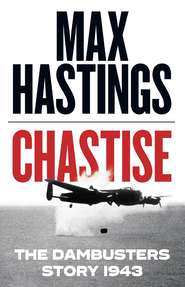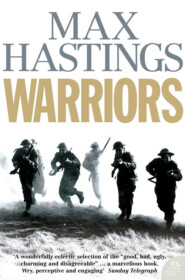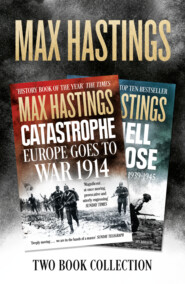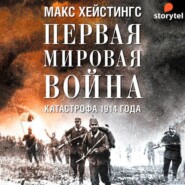По всем вопросам обращайтесь на: info@litportal.ru
(©) 2003-2024.
✖
Finest Years: Churchill as Warlord 1940–45
Настройки чтения
Размер шрифта
Высота строк
Поля
Index (#litres_trial_promo)
Acknowledgements (#litres_trial_promo)
About the Author (#litres_trial_promo)
By the Same Author (#litres_trial_promo)
About the Publisher (#litres_trial_promo)
It may well be that the most glorious chapters of our history have yet to be written. Indeed, the very problems and dangers that encompass us and our country ought to make English men and women of this generation glad to be here at such a time. We ought to rejoice at the responsibilities with which destiny has honoured us, and be proud that we are guardians of our country in an age when her life is at stake.
WSC, April 1933
History with its flickering lamp stumbles along the trail of the past, trying to reconstruct its scenes, to revive its echoes, and kindle with pale gleams the passion of former days.
WSC, November 1940
INTRODUCTION (#ulink_a49fe190-1086-5e5c-ae79-cee5c8e06423)
Winston Churchill was the greatest Englishman and one of the greatest human beings of the twentieth century, indeed of all time. Yet beyond that bald assertion there are infinite nuances in considering his conduct of Britain’s war between 1940 and 1945, which is the theme of this book. It originated nine years ago, when Roy Jenkins was writing his biography of Churchill. Roy flattered me by inviting my comments on the typescript, chapter by chapter. Some of my suggestions he accepted, many he sensibly ignored. When we reached the Second World War, his patience expired. Exasperated by the profusion of my strictures, he said: ‘You’re trying to get me to do something which you should write yourself, if you want to!’ By that time, his health was failing. He was impatient to finish his own book, which achieved triumphant success.
In the years that followed I thought much about Churchill and the war, mindful of some Boswellian lines about Samuel Johnson: ‘He had once conceived (#litres_trial_promo) the thought of writing The Life Of Oliver Cromwell…He at length laid aside his scheme, on discovering that all that can be told of him is already in print; and that it is impracticable to procure any authentick information in addition to what the world is already possessed of.’ Among the vast Churchillian bibliography, I was especially apprehensive about venturing anywhere near the tracks of David Reynolds’s extraordinarily original and penetrating In Command of History (2004). The author dissected successive drafts of Churchill’s war memoirs, exposing contrasts between judgements on people and events which the old statesman initially proposed to make, and those which he finally deemed it prudent to publish. Andrew Roberts has painted (#litres_trial_promo) a striking portrait of wartime Anglo-American relations, and especially of the great summit meetings, in Masters and Commanders (2008). We have been told more about Winston Churchill than any other human being. Tens of thousands of people of many nations have recorded even the most trifling encounters, noting every word they heard him utter. The most vivid wartime memory (#litres_trial_promo) of one soldier of Britain’s Eighth Army derived from a day in 1942 when he found the prime minister his neighbour in a North African desert latrine. Churchill’s speeches and writings fill many volumes.
Yet much remains opaque, because he wished it thus. Always mindful of his role as a stellar performer upon the stage of history, he became supremely so after 10 May 1940. He kept no diary because, he observed, to do so would be to expose his follies and inconsistencies to posterity. Within months of his ascent to the premiership, however, he told his staff (#litres_trial_promo) that he had already schemed the chapters of the book which he would write as soon as the war was over. The outcome was a ruthlessly partial six-volume work which is poor history, if sometimes peerless prose. We shall never know with complete confidence what he thought about many personalities—for instance Roosevelt, Eisenhower, Alanbrooke, King George VI, his cabinet colleagues—because he took good care not to tell us.
Churchill’s wartime relationship with the British people was much more complex than is often acknowledged. Few denied his claims upon the premiership. But between the end of the Battle of Britain in 1940 and the Second Battle of El Alamein in November 1942, not only many ordinary citizens, but also some of his closest colleagues, wanted operational control of the war machine to be removed from his hands, and some other figure appointed to his role as Minister of Defence. It is hard to overstate the embarrassment and even shame of British people as they perceived the Russians playing a heroic part in the struggle against Nazism, while their own army seemed incapable of winning a battle. To understand Britain’s wartime experience, it appears essential to recognise, as some narratives do not, the sense of humiliation which afflicted Britain amid the failures of its soldiers, contrasted—albeit often on the basis of wildly false information—with the achievement of Stalin’s.
Churchill was dismayed by the performance of the British Army, even after victories began to come at the end of 1942. Himself a hero, he expected others likewise to show themselves heroes. In 1940, the people of Britain, together with their navy and air force, wonderfully fulfilled his hopes. Thereafter, however, much of the story of Britain’s part in the war seems to me that of the prime minister seeking more from his own nation and its warriors than they could deliver. The failure of the army to match the prime minister’s aspirations is among the central themes of this book.
Much discussion of Britain’s military effort in World War II focuses upon Churchill’s relationship with his generals. In my view, this preoccupation is overdone. The difficulties of fighting the Germans and Japanese went much deeper than could be solved by changes of commander. The British were beaten again and again between 1940 and 1942, and continued to suffer battlefield difficulties thereafter, in consequence of failures of tactics, weapons, equipment and culture even more significant than lack of mass or inspired leadership. The gulf between Churchillian aspiration and reality extended to the peoples of occupied Europe, hence his faith in ‘setting Europe ablaze’ through the agency of Special Operations Executive, which had malign consequences that he failed to anticipate. SOE armed many occupied peoples to fight more energetically against each other in 1944-45 than they had done earlier against the Germans.
It is a common mistake, to suppose that those who bestrode the stage during momentous times were giants, set apart from the personalities of our own humdrum society. I have argued in earlier books that we should instead see 1939-45 as a period when men and women not much different from ourselves strove to grapple with stresses and responsibilities which stretched their powers to the limit. Churchill was one of a tiny number of actors who proved worthy of the role in which destiny cast him. Those who worked for the prime minister, indeed the British people at war, served as a supporting cast, seeking honourably but sometimes inadequately to play their own parts in the wake of a titan.
Sir Edward Bridges, then Cabinet Secretary, wrote of Churchill between 1940 and 1942: ‘Everything depended upon him (#litres_trial_promo) and him alone. Only he had the power to make the nation believe that it could win.’ This remains the view of most of the world, almost seventy years later. Yet there is also no shortage of iconoclasts. In a recent biography Cambridge lecturer Nigel Knight writes contemptuously of Churchill: ‘He was not mad (#litres_trial_promo) or simple; his misguided decisions were a product of his personality—a mixture of arrogance, emotion, self-indulgence, stubbornness and a blind faith in his own ability.’ Another modern biographer, Chris Wrigley, suggests that Sir Edward Bridges’ tribute to Churchill ‘may overstate his indispensability (#litres_trial_promo)’.
Such strictures seem otiose to those of us convinced that, in his absence, Britain would have made terms with Hitler after Dunkirk. Thereafter, beyond his domestic achievement as war leader, he performed a diplomatic role of which only he was capable: as suitor of the United States on behalf of the British nation. To fulfil this, he was obliged to overcome intense prejudices on both sides of the Atlantic. So extravagant was Churchill’s—and Roosevelt’s—wartime rhetoric about the Anglo-American alliance, that even today the extent of mutual suspicion and indeed dislike between the two peoples is often underestimated. The British ruling class, in particular, condescended amazingly towards Americans.
In 1940-41, Winston Churchill perceived with a clarity which eluded some of his fellow countrymen that only American belligerence might open a path to victory. Pearl Harbor, and not the prime minister’s powers of seduction, eventually brought Roosevelt’s nation into the war. But no other statesman could have conducted British policy towards the United States with such consummate skill, nor have achieved such personal influence upon the American people. This persisted until 1944, when his standing in the US declined precipitously, to revive only when the onset of the Cold War caused many Americans to hail Churchill as a prophet. His greatness, which had come to seem too large for his own impoverished country, then became perceived as a shared Anglo-American treasure.
From June 1941 onwards, Churchill saw much more clearly than most British soldiers and politicians that Russia must be embraced as an ally. But it seems important to strip away legends about aid to the Soviet Union, and to acknowledge how small this was in the decisive 1941-42 period. Stalin’s nation saved itself with little help from the Western Allies. Only from 1943 onwards did supplies to Russia gain critical mass, and Anglo-American ground operations absorb a significant part of the Wehrmacht’s attention. The huge popularity of the Soviet Union in wartime Britain was a source of dismay, indeed exasperation, to the small number of people at the top who knew the truth about the barbarity of Stalin’s regime, its hostility to the West, and its imperialistic designs on Eastern Europe.
The divide between the sentiments of the public and those of the prime minister towards the Soviet Union became a chasm in May 1945. One of Churchill’s most astonishing acts, in the last weeks of his premiership, was to order the Joint Planning Staff to produce a draft for Operation Unthinkable. The resulting document considered the practicability of launching an Anglo-American offensive against the USSR, with forty-seven divisions reinforced by the remains of Hitler’s Wehrmacht, to restore the freedom of Poland. Though Churchill recognised this as a remote contingency, it is remarkable that he caused the chiefs of staff to address it at all.
I am surprised how few historians seem to notice that many things which the British and Americans believed they were concealing from the Soviets—for instance, Bletchley Park’s penetration of Axis ciphers and Anglo-American arguments about launching a Second Front—were well known to Stalin, through the good offices of communist sympathisers and traitors in Whitehall and Washington. The Soviets knew much more about their allies’ secret policy-making than did the British and Americans about that of the Russians.
It is fascinating to study public mood swings through wartime British, American and Russian newspapers, and the diaries of ordinary citizens. These often give a very different picture from that of historians, with their privileged knowledge of how the story ended. As for sentiment at the top, some men who were indifferent politicians or commanders contributed much more as contemporary chroniclers. The diaries of such figures as Hugh Dalton, Leo Amery and Lt.Gen. Henry Pownall make them more valuable to us as eye-witnesses and eavesdroppers than they seemed to their contemporaries as players in the drama.
Maj.Gen. John Kennedy, for much of the war the British Army’s Director of Military Operations, kept a diary which arguably ranks second only to that of Gen. Sir Alan Brooke for its insights into the British military high command. On 26 January 1941, in the darkest days of the conflict, Kennedy expressed a fear that selective use of accounts of the meetings of Britain’s leaders might mislead posterity:
It would be easy by a cunning (#litres_trial_promo) or biased selection of evidence to give the impression for instance that the P.M.’s strategic policy was nearly always at fault, & that it was only by terrific efforts that he is kept on the right lines—and it would be easy to do likewise with all the chiefs of staff. The historian who has to deal with the voluminous records of this war will have a frightful task. I suppose no war has been so well documented. Yet the records do not often reveal individual views. It is essentially a government of committees…Winston is of course the dominating personality & he has in his entourage and among his immediate advisers no really strong personality. Yet Winston’s views do not often prevail if they are contrary to the general trend of opinion among the service staffs. Minutes flutter continually from Winston’s typewriter on every conceivable subject. His strategic imagination is inexhaustible and many of his ideas are wild and unsound and impractic-able…but in the end they are killed if they are not acceptable.
These observations, made in the heat of events, deserve respect from every historian of the period. Another banal and yet critical point is that circumstances and attitudes shifted. The prime minister often changed his mind, and deserves more credit than he sometimes receives for his willingness to do so. Meanwhile, others vacillated in their views of him. Some who revered Churchill in the first months of his premiership later became bitterly sceptical, and vice versa. After Dunkirk, Britain’s middle classes were considerably more staunch than some members of its traditional ruling caste, partly because they knew less about the full horror of the country’s predicament. History perceives as pivotal Britain’s survival through 1940, so that the weariness and cynicism that pervaded the country by 1942, amid continuing defeats, are often underrated. Industrial unrest, manifested in strikes especially in the coalfields, and in the aircraft and shipbuilding industries, revealed fissures in the fabric of national unity which are surprisingly seldom acknowledged.
This book does not seek to retell the full story of Churchill at war, but rather to present a portrait of his leadership from the day on which he became prime minister, 10 May 1940, set in the context of Britain’s national experience. It is weighted towards the first half of the conflict, partly because Churchill’s contribution was then much greater than it became later, and partly because I have sought to emphasise issues and events about which there seem new things to be said. There is relatively little in this book about the strategic air offensive. I addressed this earlier in Bomber Command and Armageddon. I have here confined myself to discussion of the prime minister’s personal role in key bombing decisions. I have not described land and naval campaigns in detail, but instead considered the institutional cultures which influenced the performance of the British Army, Royal Navy and RAF, and the three services’ relationships with the prime minister.
To maintain coherence, it is necessary to address some themes and episodes which are familiar, though specific aspects deserve reconsideration. There was, for instance, what I have called the second Dunkirk, no less miraculous than the first. Churchill’s biggest misjudgement of 1940 was his decision to send more troops to France in June after the rescue of the BEF from the beaches. Only the stubborn insistence of their commander, Lt.Gen. Sir Alan Brooke, made it possible to overcome the rash impulses of the prime minister and evacuate almost 200,000 men who would otherwise have been lost.
The narrative examines some subordinate issues and events in which the prime minister’s role was crucial, such as the strategic contribution of SOE—as distinct from romantic tales of its agents’ derring-do—the Dodecanese campaign and Churchill’s Athens adventure in December 1944. I have attempted little original research in his own papers. Instead, I have explored the impression he made upon others—generals, soldiers, citizens, Americans and Russians. Moscow’s closure of key archives to foreign researchers has curtailed the wonderful bonanza of the post-Cold War period. But much important material was published in Russian documentary collections.
It seems mistaken to stint on quotation from Alan Brooke, John Colville and Charles Wilson (Lord Moran), merely because their records have been long in the public domain. Recent research on Moran’s manuscript suggests that, rather than being a true contemporary record, much of it was written up afterwards. Yet most of his anecdotes and observations appear credible. The diaries of Churchill’s military chief, junior private secretary and doctor provide, for all their various limitations, the most intimate testimony we shall ever have about Churchill’s wartime existence.
He himself, of course, bestrides the tale in all his joyous splendour. Even at the blackest periods, when his spirits sagged, flashes of exuberance broke through, which cheered his colleagues and contemporaries, but caused some people to recoil from him. They were dismayed, even disgusted, that he so conspicuously thrilled to his own part in the greatest conflict in human history. ‘Why do we regard history as of the past and forget we are making it?’ he exulted to Australian prime minister Robert Menzies in 1941. It was this glee which caused such a man as the aesthete and diarist James Lees-Milne to write fastidiously after it was all over: ‘Churchill so evidently (#litres_trial_promo) enjoyed the war that I could never like him. I merely acknowledge him, like Genghis Khan, to have been great.’
Lees-Milne and like-minded critics missed an important aspect of Churchill’s attitude to conflict in general, and to the Second World War in particular. He thrilled to the cannon’s roar, and rejoiced in its proximity to himself. Yet never for a moment did he lose his sense of dismay about the death and destruction that war visited upon the innocent. ‘Ah, horrible war, amazing medley of the glorious and the squalid, the pitiful and the sublime,’ he wrote as a correspondent in South Africa in January 1900. ‘If modern men of light and leading saw your face closer simple folk would see it hardly ever.’ Hitler was indifferent to the sufferings his policies imposed upon mankind. Churchill never flinched from the necessity to pay in blood for the defeat of Nazi tyranny. But his sole purpose was to enable the guns to be silenced, the peoples of the world restored to their peaceful lives.
Appetite for the fray was among Churchill’s most convincing credentials for national leadership in May 1940. Neville Chamberlain had many weaknesses as prime minister, but foremost among them was a revulsion from the conflict to which his country was committed, shared by many members of his government. One of them, Rob Bernays, said: ‘I wish I were twenty (#litres_trial_promo). I cannot bear this responsibility.’ A nation which found itself committed to a life-and-death struggle against one of the most ruthless tyrannies in history was surely wise to entrust its leadership to a man eager to embrace the role, rather than one who shrank from it. This book discusses Churchill’s follies and misjudgements, which were many and various. But these are as pimples upon the mountain of his achievement. It is sometimes said that the British and American peoples are still today, in the twenty-first century, indecently obsessed with the Second World War. The reason is not far to seek. We know that here was something which our parents and grandparents did well, in a noble cause that will forever be identified with the person of Winston Churchill, warlord extraordinary.
Max Hastings
Chilton Foliat, Berkshire
May 2009
ONE The Battle of France (#ulink_a5ecc3f5-756f-5050-824a-de6bec7b1dc1)
For seven months after the Second World War began in September 1939, many British people deluded themselves that it might gutter out before there was a bloodbath in the West. On 5 April 1940, while the armed but passive confrontation which had persisted since the fall of Poland still prevailed on the Franco-German border, prime minister Neville Chamberlain told a Conservative Party meeting: ‘Hitler has missed the bus.’ Less than five weeks later, however, on 7 May, he addressed the House of Commons to explain the disastrous outcome of Britain’s campaign to frustrate the German occupation of Norway. Beginning with a tribute to British troops who had ‘carried out their task with magnificent gallantry’, in halting tones he continued:
I hope that we shall not exaggerate the extent or the importance of the check we have received. The withdrawal from southern Norway is not comparable to the withdrawal from Gallipoli…There were no large forces involved. Not much more than a single division…Still, I am quite aware…that some discouragement has been caused to our friends, and that our enemies are crowing…I want to ask hon. Members not to form any hasty opinions on the result of the Norwegian campaign so far as it has gone…A minister who shows any sign of confidence is always called complacent. If he fails to do so, he is labelled defeatist. For my part I try to steer a middle course—[Interruption]—neither raising undue expectations [Hon. Members: ‘Hitler missed the bus’] which are unlikely to be fulfilled, nor making people’s flesh creep by painting pictures of unmitigated gloom. A great many times some hon. Members have repeated the phrase ‘Hitler missed the bus’—[Hon. Members: ‘You said it’]…While I retain my complete confidence on our ultimate victory, I do not think that the people of this country yet realise the extent or the imminence of the threat which is impending against us [An Hon. Member: ‘We said that five years ago’].
When the debate ended the following night, thirty-three Tories voted against their own party on the Adjournment Motion, and a further sixty abstained. Though Chamberlain retained a parliamentary majority, it was plain that his Conservative government had lost the nation’s confidence. This was not merely the consequence of the Norway campaign, but because through eight fumbling months it had exposed its lack of stomach for war. An all-party coalition was indispensable. Labour would not serve under Chamberlain. Winston Churchill became Britain’s prime minister following a meeting between himself, Chamberlain, Foreign Secretary Lord Halifax and Tory chief whip David Margesson on the afternoon of 9 May 1940, at which Halifax declared his own unsuitability for the post, as a member of the House of Lords who would be obliged to delegate direction of the war to Churchill in the Commons. In truth, some expedient could have been adopted to allow the Foreign Secretary to return to the Commons. But Halifax possessed sufficient self-knowledge to recognise that no more than Neville Chamberlain did he possess the stuff of a war leader.
While much of the ruling class disliked and mistrusted the new premier, he was the overwhelming choice of the British people. With remarkably sure instinct, they perceived that if they must wage war, the leadership of a warrior was needed. David Reynolds has observed that when the Gallipoli campaign failed in 1915, many people wished to blame Churchill—then, as in 1940, First Lord of the Admiralty—while after Norway nobody did. ‘It was a marvel (#litres_trial_promo),’ Churchill wrote in an unpublished draft of his war memoirs, ‘I really do not know how—I survived and maintained my position in public esteem while all the blame was thrown on poor Mr Chamberlain.’ He may also have perceived his own good fortune that he had not achieved the highest office in earlier years, or even in the earlier months of the war. Had he done so, it is likely that by May 1940 his country would have tired of the excesses which he would surely have committed, while being no more capable than Chamberlain of stemming the tide of fate on the Continent. Back in 1935, Stanley Baldwin explained to a friend his unwillingness to appoint Churchill to his own cabinet: ‘If there is going to be a war (#litres_trial_promo)—and who can say there is not—we must keep him fresh to be our war Prime Minister.’ Baldwin’s tone was jocular and patronising, yet there proved to be something in what he said.
In May 1940 only generals and admirals knew the extent of Churchill’s responsibility for Britain’s ill-starred Scandinavian deployments. Nonetheless the familiar view, that he was sole architect of disaster, seems overstated. Had British troops been better trained, motivated and led, they would have made a better showing against Hitler’s forces, which repeatedly worsted them in Norway while often inferior in numbers. The British Army’s failure reflected decades of neglect, together with institutional weaknesses that would influence the fortunes of British arms through the years which followed. These were symbolically attested by a colonel who noticed among officers’ baggage being landed at Namsos on the central Norwegian coast ‘several fishing rods (#litres_trial_promo) and many sporting guns’. No German officer would have gone to war with such frivolous accoutrements.
Now Halifax wrote disdainfully to a friend: ‘I don’t think WSC will be (#litres_trial_promo) a very good PM though…the country will think he gives them a fillip.’ The Foreign Secretary told his junior minister R.A. Butler, when they discussed his own refusal to offer himself for the premiership: ‘It’s all a great pity (#litres_trial_promo). You know my reasons, it’s no use discussing that—but the gangsters will shortly be in complete control.’ Humbler folk disagreed. Lancashire housewife Nella Last wrote in her diary on 11 May: ‘If I had to spend (#litres_trial_promo) my whole life with a man, I’d choose Mr Chamberlain, but I think I would sooner have Mr Churchill if there was a storm and I was shipwrecked. He has a funny face, like a bulldog living in our street who has done more to drive out unwanted dogs and cats…than all the complaints of householders.’ London correspondent Mollie Panter-Downes told New Yorker readers: ‘Events are moving so fast (#litres_trial_promo) that England acquired a new Premier almost absent-mindedly…It’s paradoxical but true that the British, for all their suspicious dislike of brilliance, are beginning to think they’d be safer with a bit of dynamite around.’ National Labour MP Harold Nicolson, a poor politician but a fine journalist and diarist, wrote in the Spectator of Churchill’s ‘Elizabethan zest for life (#litres_trial_promo)…His wit…rises high in the air like some strong fountain, flashing in every sunbeam, and renewing itself with ever-increasing jets and gusts of image and association.’
Though Churchill’s appointment was made by the King on the advice of Chamberlain, rather than following any elective process, popular acclaim bore him to the premiership—and to the role as Minister of Defence which he also appropriated. Tory MP Leo Amery was among those sceptical that Churchill could play so many parts: ‘How Winston thinks (#litres_trial_promo) that he can be Prime Minister, co-ordinator of defence and leader of the House all at once, is puzzling, and confirms my belief that he really means the present arrangement to be temporary. Certainly no one can coordinate defence properly who is not prepared to be active head of the three Chiefs of Staff and in fact directly responsible for plans.’ Critics were still expressing dismay about Churchill’s joint role as national leader and defence minister three years later. Yet this was prompted not by mere personal conceit, but by dismay at the shocking lack of coordination between the services which characterised the Norway campaign. And posterity perceives, as did he himself at the time, that beyond his own eagerness to run Britain’s war machine, there was no other political or military figure to whom delegation of such power would have been appropriate.
In one of the most famous and moving passages of his memoirs, Churchill declared himself on 10 May ‘conscious of a profound (#litres_trial_promo) sense of relief. At last I had the authority to give directions over the whole scene. I felt as if I were walking with destiny, and that all my past life had been but a preparation for this hour and this trial.’ He thrilled to his own ascent to Britain’s leadership. Perhaps he allowed himself a twitch of satisfaction that he could at last with impunity smoke cigars through cabinet meetings, a habit that had annoyed his predecessor. If, however, he cherished a belief that it would be in his gift to shape strategy, events immediately disabused him.
At dawn on 10 May, a few hours before Churchill was summoned to Buckingham Palace, Hitler’s armies stormed across the frontiers of neutral Holland, Belgium and Luxembourg. Captain David Strangeways, serving with the British Expeditionary Force near Lille just inside the French border, bridled at the impertinence of an orderly room clerk who rushed into the quarters where he lay abed shouting: ‘David, sir, David! (#litres_trial_promo)’ Then the officer realised that the clerk was passing the order for Operation David, the BEF’s advance from the fortified line which it had held since the previous autumn, deep into Belgium to meet the advancing Germans. Though the Belgians had declared themselves neutrals since 1936, Allied war planning felt obliged to anticipate an imperative requirement to offer them aid if Germany violated their territory.
David perfectly fulfilled Hitler’s predictions and wishes. On 10 May the British, together with the French First and Seventh Armies, hastened to abandon laboriously prepared defensive positions. They mounted their trucks and armoured vehicles, then set off in long columns eastward towards the proffered ‘matador’s cloak’, in Liddell Hart’s phrase, which the Germans flourished before them in Belgium. Further south in the Ardennes forest, Panzer columns thrashed forward to launch one of the war’s great surprises, a thrust at the centre of the Allied line, left inexcusably weak by the deployments of the Allied supreme commander, France’s General Maurice Gamelin. Guderian’s and Reinhardt’s tanks, racing for the Meuse, easily brushed aside French cavalry posturing in their path. Luftwaffe paratroops and glider-borne forces burst upon the Dutch and Belgian frontier fortresses. Stukas and Messerschmitts poured bombs and machine-gun fire upon bewildered formations of four armies.
No more than his nation did the prime minister grasp the speed of approaching catastrophe. The Allied leaders supposed themselves at the beginning of a long campaign. The war was already eight months old, but thus far neither side had displayed impatience for a decisive confrontation. The German descent on Scandinavia was a sideshow. Hitler’s assault on France promised the French and British armies the opportunity, so they supposed, to confront his legions on level terms. The paper strengths of the two sides in the west were similar—about 140 divisions apiece, of which just nine were British. Allied commanders and governments believed that weeks, if not months, would elapse before the critical clash came. Churchill retired to bed on the night of 10 May knowing that the Allies’ strategic predicament was grave, but bursting with thoughts and plans, and believing that he had time to implement them.
Events which tower in the perception of posterity must at the time compete for attention with trifles. The BBC radio announcer who told the nation of the German invasion of Belgium and Holland followed this by reporting: ‘British troops have landed (#litres_trial_promo) in Iceland,’ as if the second news item atoned for the first. The Times of 11 May 1940 reported the issue of an arrest warrant at Brighton bankruptcy court for a playwright named Walter Hackett, said to have fled to America. An army court martial was described, at which a colonel was charged with ‘undue familiarity’ with a sergeant in his searchlight unit. What would soldiers think, demanded the prosecutor, on hearing a commanding officer address a sergeant as ‘Eric’? Advertisements for Player’s cigarettes exhorted smokers: ‘When cheerfulness is in danger of disturbance, light a Player…with a few puffs put trouble in its proper place.’ The Irish Tourist Association promised: ‘Ireland will welcome you.’ On the front page, a blue Persian cat was offered for sale at £2.10s: ‘house-trained: grandsire Ch. Laughton Laurel; age 7 weeks—Bachelor, Grove Place, Aldenham’. Among Business Offers, a ‘Gentleman with extensive experience wishes join established business, Town or Country, capital available.’ A golf report on the sports page was headed: ‘What the public want.’ There was a poem by Walter de la Mare: ‘O lovely England, whose ancient peace/War’s woful dangers strain and fret.’












